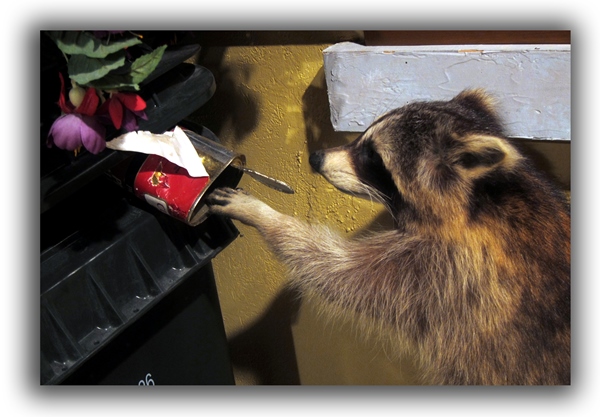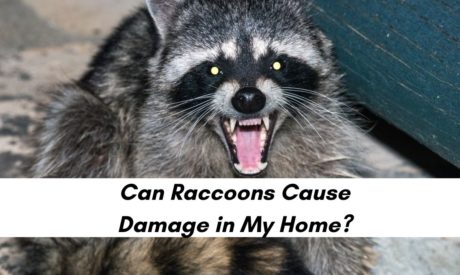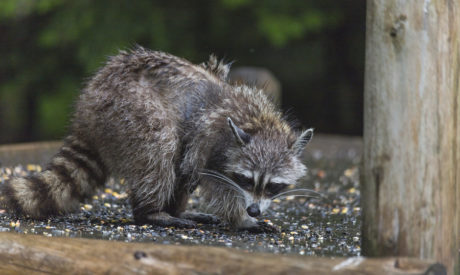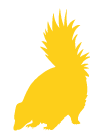 Raccoon Infestations in North Carolina
Raccoon Infestations in North Carolina
Raccoons are prevalent in the Piedmont, and residents of Raleigh, Durham, and the greater Triangle area are likely aware of what a raccoon looks like.
In the winter and spring, they frequently invade homes, usually by finding ways of entering attics and escaping from the cold, so they can nest and raise their young. Raccoons are strong animals and can damage the shingles, fascia boards, and ventilation structures they enter.
How Critter Control of the Triangle Gets Rid of Raccoons
Raccoon Pest Inspection
Our process starts with a full home inspection. We develop a custom plan to solve your raccoon problem based on our exhaustive inspection.
We first inspected the area where you first noticed an issue. From there, they will look for entry points inside your home, investigate your property including your roof, and identify physical evidence like raccoon tracks and droppings.
Raccoon Trapping
Cage traps are the most effective and humane way to remove a raccoon from attics, roofs, and chimneys. We set and bait the traps to capture a raccoon but limited the possibilities of catching a non-target species.
Raccoon Exclusion
Exclusion repairs are the most effective raccoon control. Some of the most common damage repairs include chimney caps, roof vents, and shingles. After raccoon removal, we seal all entry points with material to block all potential raccoon entry points. Once the house is protected from raccoon infestations, we apply sanitization and ectoparasite agents to mitigate the raccoon damage in your house.
Critter Control of the Triangle sends our technicians and certified wildlife specialists to the field with the knowledge and tools necessary for raccoon removal.
Signs of a Raccoon Infestation
If a raccoon is living in your attic, you’ll notice it. Nocturnal critters, you likely won’t see a raccoon. Common raccoon problems include property damage, health risks, and nuisance activity like creating unpleasant odors and bothersome noises.
Raccoon Sounds
Except for occasional high-pitched squeals and growls when threatened, raccoons are a quiet species. Baby raccoons often sound like birds, and residents often mistake the two when reporting noises in chimneys, walls or attics. As night crawlers by nature, raccoons are rarely seen during the daytime. The exception to this is in the springtime when female raccoons take time away from their litter to look for food.
Raccoon Odor
If you notice a strange smell coming from your ceiling, walls, crawlspace, or basement, it could signal a raccoon is living with you. Many compare the scent of a raccoon to that of a musky smell, like a wet dog. Contributing factors of a raccoon’s smell include scent glands in its tail that activate during mating season and a combination of the natural oils and filth in their fur.
Raccoons have a unique habit of creating latrines, an area specifically for feces and urine. They use the same one repeatedly. Therefore, they make large waste piles in your attic, walls, or ceilings, and the odors will linger in your living space.
Raccoon Damage
Raccoons will damage the exterior and interior of your house.
Raccoons are excellent climbers and can climb on every part of your home’s exterior. Raccoon attempts to find entry points will create holes and gaps in your home.
Raccoons also damage your lawn by digging holes to search for insects, raiding bird feeders, scraping bark from trees, stealing garden crops, and devouring fruits from citrus and other trees.
Common raccoon damage within attics includes damage to the insulation from feces/urine, damage to the ductwork or wiring, staining of drywall from urine, and water damage.
Disease Risks at a Glance
Raccoons can be infected with rabies, and any raccoon bites must be considered a possible exposure to the rabies virus. They can also spread leptospirosis and the parasites baylisascaris and giardia.
We service raccoon removal in Raleigh, Durham, Cary, Apex, Chapel Hill and the surrounding areas of North Carolina’s Triangle region.

Can Raccoons Cause Damage and Are They Dangerous?
- Posted by AdminBW
- On February 19, 2021
Raccoons are no joke. These unique animals, which are relatives of bears, weasels, and — maybe most closely —...

The Battle For Your Trash – Raccoons vs Opossums
- Posted by AdminBW
- On November 24, 2016
Every night as you lay down to sleep, nature’s night shift begins. A whole separate cast of critters is...


















